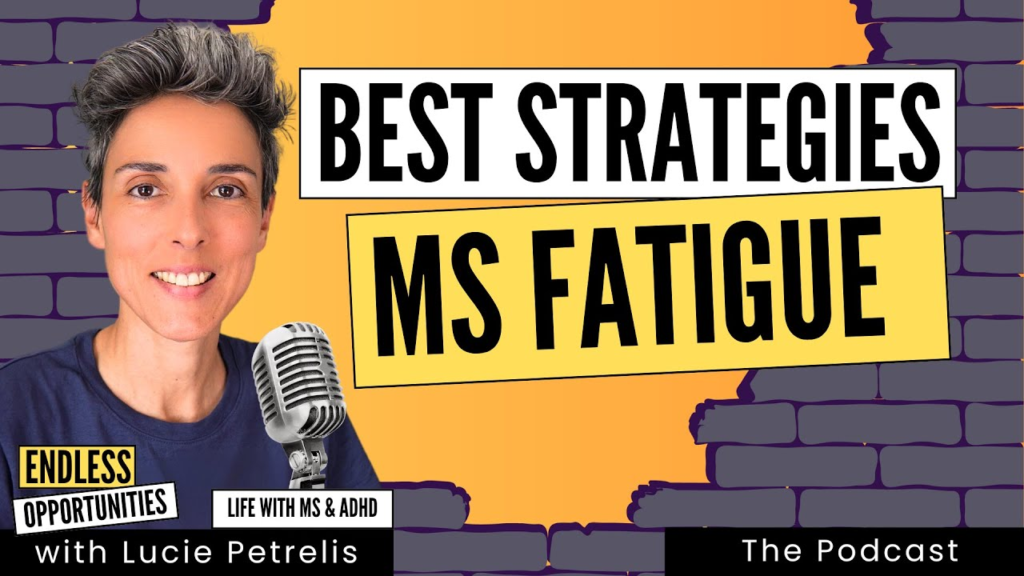
People suffering from fibromyalgia often experience “fibro fog,” a type of cognitive dysfunction also referred to as brain fog.

People suffering from fibromyalgia often experience “fibro fog,” a type of cognitive dysfunction also referred to as brain fog.

In a study, it was found that participants in a self-directed dietary education program who were most successful in losing weight over a 25-month period consumed higher amounts of protein and fiber. The study highlighted the importance of personalization and flexibility in creating plans that dieters can stick to long-term.
Sure, here’s the revised text:”After one year, successful dieters (41% of participants) had lost 12.9% of their body weight. In comparison, the remaining participants in the study had only lost slightly more than 2% of their starting weight, according to a paper published in Obesity Science and Practice.”
The dieters were participants in the Individualized Diet Improvement Program. This program uses data visualization tools and intensive dietary education sessions to increase dieters’ knowledge of key nutrients, enabling them to create a personalized, safe, and effective weight-loss plan. Manabu T. Nakamura, a professor of nutrition at the University of Illinois Urbana-Champaign, led the research.
“Flexibility and personalization are crucial in developing programs that enhance the success of individuals in losing weight and maintaining it,” stated Nakamura. “In order to sustain a healthy weight, it is essential to achieve long-term dietary changes that are tailored to each individual. The iDip approach enables participants to explore different dietary approaches, and the experience and skills they acquire while losing weight form the basis for maintaining a healthy lifestyle.”
The iDip program focuses on increasing protein and fibre intake while consuming 1,500 or fewer daily calories.
Based on the dietary guidelines issued by the Institute of Medicine, the iDip team has developed a unique two-dimensional quantitative data visualization tool. This tool plots the protein and fibre densities of foods per calorie and provides a target range for each meal. The dieters began by selecting the foods they usually eat and then created a personalized plan to increase their daily protein intake to about 80 grams and their fiber intake to about 20 grams.
In tracking participants’ eating habits and their weights with Wi-Fi-enabled scales, the team discovered strong inverse correlations between the percentages of fiber and protein consumed and dieters’ weight loss.
“The research strongly suggests that to optimize the safety and effectiveness of weight loss diets, it is necessary to increase protein and fiber intake while simultaneously reducing calories,” said Mindy H. Lee, the first author of the study and a former graduate student at the University of Illinois. Lee is also a registered dietitian-nutritionist for the iDip program.
Nakamura emphasized the importance of preserving lean mass while losing weight, particularly when utilizing weight-loss medications.
“Nakamura noted that there has been a recent increase in the popularity of injectable weight loss medications. Nevertheless, it is important to be cautious when using these medications, especially when food intake is severely limited. Doing so may lead to serious side effects such as muscle and bone loss, unless protein intake is increased during the weight loss process.”
A total of 22 people enrolled in the program and successfully completed it, including nine men and 13 women. Most of the participants were between the ages of 30 and 64. The participants reported having made two or more prior attempts to lose weight. They also had a variety of health conditions – 54% had high cholesterol, 50% had skeletal problems, and 36% had hypertension and/or sleep apnea. Additionally, the participants reported diagnoses of diabetes, nonalcoholic fatty liver disease, cancer, and depression, according to the study.
Out of the seven dieters who mentioned they had been diagnosed with depression, they lost about 2.4% of their initial weight, which was significantly less compared to those without depression. The latter group lost around 8.39% of their starting weight. The researchers also discovered that weight loss did not show significant differences among participants with other health conditions, or between different age groups or genders.
Results from body composition analysis revealed that individuals who were on a diet were able to preserve their lean body mass while shedding an average of 7.1 kilograms of fat mass and minimal muscle mass over a six-month period. Moreover, for those who lost more than 5% of their initial weight, 78% of the weight lost was fat, according to the research findings.
During the program, the participants reduced their fat mass from an average of 42.6 kilograms to 35.7 kilograms after 15 months. Additionally, the dieters shrank their waist size by approximately 7 centimeters after six months and by a total of 9 centimeters at the 15-month mark, according to the team’s findings.
In analyzing the protein and fiber intake of dieters, the team discovered a significant link between protein and fiber consumption and weight loss after three and twelve months.
“The strong correlation suggests that participants who were able to establish lasting changes in their diet within the first three months continued to lose weight in the following months. On the other hand, those who struggled to adopt sustainable dietary patterns early on rarely managed to change their diet in the later months,” stated Nakamura.
The team hypothesized that this correlation might also have been linked to the early weight loss success of some dieters, which could have boosted their motivation and adherence to the program.

In today’s video podcast episode, I will be sharing valuable insights and strategies for managing MS fatigue and how to address it. I will discuss how this symptom manifests, how to minimize it, ways to prevent it, and the most beneficial mindset to have when dealing with MS and MS fatigue. I will also explain what MS fatigue looks like and how it can impact people with MS and those around them. The information and solutions presented are relevant not only to individuals with MS but also to those with other autoimmune conditions that have fatigue as a primary symptom. This episode will also provide value to those who are chronically tired, overwhelmed, and living in a survival mode.
How do we differentiate between fatigue and general tiredness? It’s simple. When we are tired, rest or sleep rejuvenates us, and we feel better afterwards. Tiredness does not significantly affect our body’s response, and with effort, we can continue functioning for a while longer. We have some control over it. On the other hand, fatigue is not alleviated by rest or sleep and can persist for an unknown period until we feel better. It also tends to be unpredictable. Overcoming fatigue is not solely a matter of willpower; it also affects our body and mind. The good news is that there are ways to reduce the likelihood of experiencing fatigue and methods to prevent both fatigue and MS fatigue.

Dr. Susan Bartlett discusses the challenges of dealing with flares, fatigue, and pain in rheumatoid arthritis. Flares are often triggered by stress, so it’s important to pay attention to your body during these times. Fatigue in RA is an extreme exhaustion that does not improve with rest or sleep. Dr. Bartlett offers strategies for managing pain and encourages patients to communicate with their doctors about their pain levels.
Yes, I know the theme of this week’s blogging about autism seems to be education.
But I can defend this on the grounds that John, our eight-year-old son, is still in education, so it is of great interest. But I really need your help and advice with a problem that has just arisen.
So firstly, a bit of background!
As we have mentioned before, our son attends ResourceBase, which is a halfway house between a specialist ASD school and a mainstream one. I’ve blogged about it in some detail here if you are interested.
As I have mentioned in previous blog posts, my wife and I are very pleased with John’s development at the Resourcebase. The numerous staff members are committed and caring. Above all, they are properly trained to do their jobs, and that training is ongoing.
Indeed, John has progressed rapidly in the nearly two years he has been at ResourseBase.
That being said, he still has some way to go before he reaches parity with his peers. There are a number of reasons for this, but most especially, there are his problems with handwriting, which in turn are caused by his many issues with fine motor skills. He does need some intensive work, in particular, in occupational therapy, to help him move forward.
So, his mother and I have suggested to the school that they keep him down a year next year so that he can cement the skills he has already learned and develop those he needs before it is time to move on to new challenges. He also needs to make up for lost therapy during his time in mainstream education.
The school’s reaction has not been positive so far. This is not really from the school but from the local government body that deals with education. For those of you who do not know, my family and I live in London, England.
There are a number of reasons stated, but mainly, it comes down to transitioning our son to other schools when he has finished his current stage. In the UK, this transition normally takes place at the age of 11. But we know from our own experience that it has been shared for autistic children to be “kept down a year,” in fact, with much success.
So why would we like your help?
Very simple.
Please share your thoughts on this problem in the comments section below.
In particular, we are interested in your views on the following questions.
a) Do you think keeping an autistic child “down a year” is a good or bad idea in principle?
b) Have you had any experience with this yourself? Please tell your story in the comments section below.
c) What happened when you child transitioned out of education or to a new level such as high school or university?
d) In general, when you disagreed with the proposals of your child’s education providers, how did that work out?
My wife and I would love to read your comments to help prepare a case to give our son the best education possible.
I really appreciate any help you can provide.
PS If you know of anyone who might be able to help with any of these questions please can you share this blog post with them. Thx.